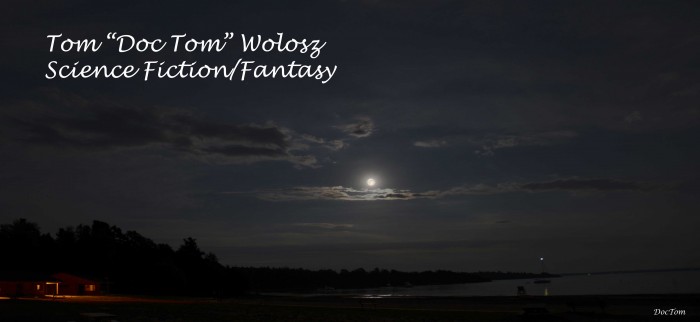Some friends have asked me, “What’s it like to write a book?” I find that to be an odd question, because like any human achievement it really comes down to a lot of hard work, plus a certain amount of ability, concentrated towards a goal. For instance, I know a Master Mechanic, who I swear can fix any car problem know to man. I once took a car to him that the dealership couldn’t diagnose and before I had even finished describing the symptoms he told me what the problem was – and was right! Move over Click and Klack! How’d he get that way? Lots of hours reading every automotive trouble report posted anywhere, and lots of hours under the hood of a car. Writing a book is lots of hours thinking the story through, and lots of hours over a keyboard.
The writer is, of course, more like an artist who has a vision and forms it with paint and canvas, or stone, or ceramic, or whatever medium (but again, my friend is a mechanical artist because his vision is the solution and he creates it through his skill). The writer forms a vision with words.
I guess the biggest difference is where the ideas come from. All ideas come from the cauldron of experience we call our lives. At its most basic the idea for “Agony of the Gods” came from a small bit of back ground in the writing of my favorite science fiction writer when I was a child – Alice Mary Norton aka Andre Norton. In at least one of her books (and no, I don’t remember which) the main character came from a place called “The Dipple” (if I remember correctly) which was a world inhabited by refugees following an interstellar conflict. I don’t think Norton’s description ever exceeded a few lines, and it might have been somewhat clichéd (the hero rising above his or her unfair and lowly beginnings) but it had an impact on me. Years later I started thinking through a possible story about a world of such refugees where the main livelihood (if you could call it that) was re-enacting various conflicts for the enjoyment of the Mega-rich. The downside would be that death was real for all but the person paying for the re-enactment. Consider the opening battle scene from the movie “Gladiator.” Imagine a world where some super-rich person could be Marcus Aurelius. He or she could order and direct the attack, even take part, but without fear of personal danger. Yet all those taking part would actually be fighting and dying. This was the seed that grew into the idea of the Originals (the “Gods”) having their own worlds in “Agony of the Gods.” From such small beginnings do stories grow!
